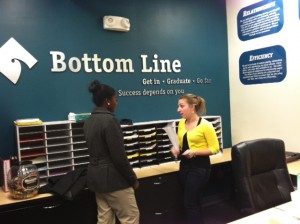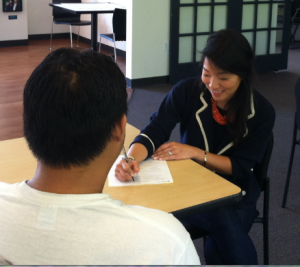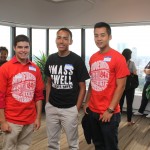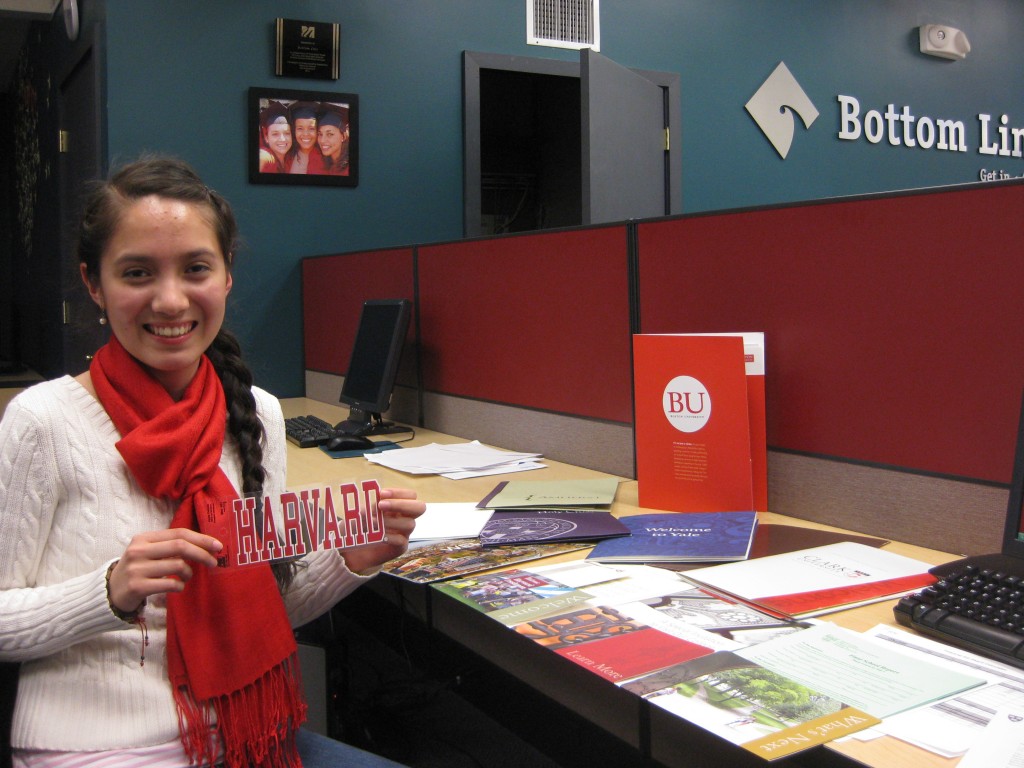It’s hard for my First Year students to believe that the Fall 2012 semester is almost over! With that disbelief also comes the students’ awareness that their grades may not be as good as they were in high school. Many students really struggle with the transition from high school level to college level work. Luckily, Bottom Line students have their counselors to really help guide them through the transition. Bottom Line addresses this issue by providing summer programming and has developed specific tools to help our students find success during their critical first year.
Our summer transition program includes both group workshops and one-on-one meetings. One workshop on time management always seems to be especially eye-opening. After adding classes and study time to a weekly schedule, counselors bombarded students with different responsibilities and activities that also needed to be taken care of, on top of all of their studying and homework! I can remember one student shouting “I don’t have time for all of this extra stuff!” Although a little early, it was an easy way for students to prepare for things they were about to face during their first (and every other) year of college. Some students immediately internalize the lesson and others need more reinforcing once they arrive on campus.
This fall, I’ve been working with many First Year students on improving their time management and study skills. I have 38 First Year students at four different colleges and have had 196 campus meetings and phone follow-ups this fall. Additionally, I met with over 50% of my First Years who felt like they needed extra support for time management and test prep strategies meetings. Simply reading over notes doesn’t really cut it on college exams. My students and I have worked together to create study plans tailored to each of their exams, as well as their learning needs. With some students, I can simply suggest recopying and summarizing notes or making flashcards for vocabulary words. With other students, they may need to draw diagrams, attend tutoring and office hours, and form study groups. Helping students create these study plans and break down when things need to be done, makes the task of studying a little less daunting. Showing students how to put in a little extra effort and attack problems from different directions to make success possible shows the value of our meetings to my students and is why I love working for Bottom Line.
– Kira Terrill
Success Counselor







